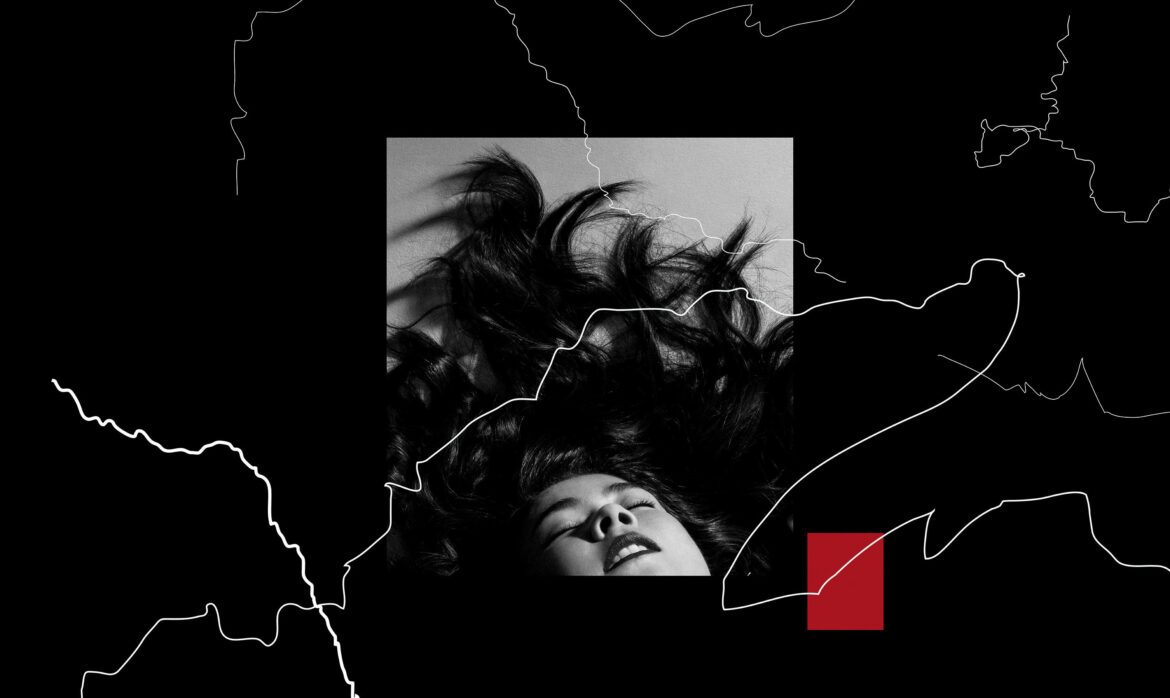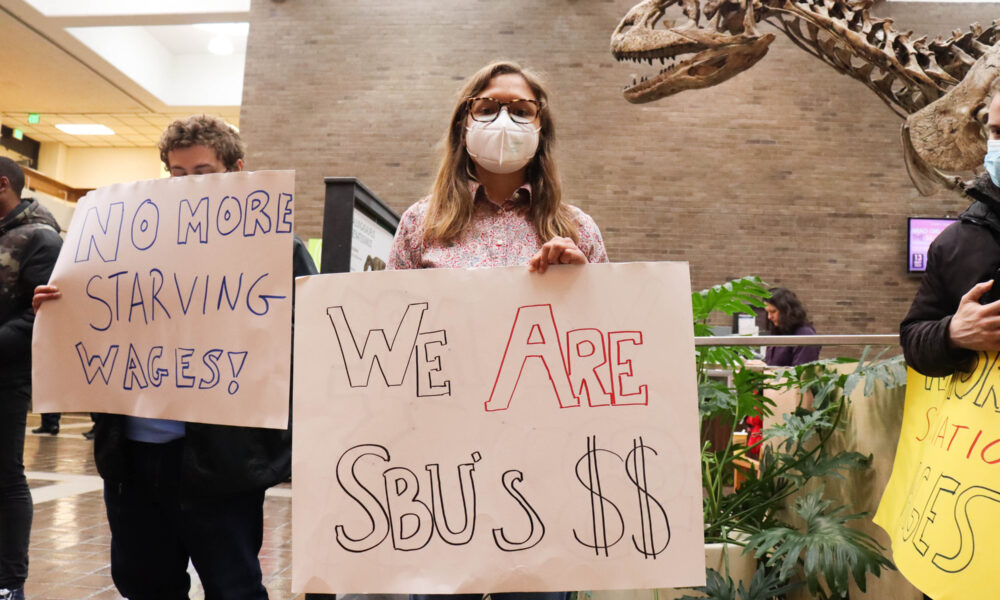By Jane Montalto and Grace Armann
Let’s step carefully into the dark
Once we’re in, I’ll remember my way around
These are the daunting opening words of Mitski Miyawaki’s sixth album, Laurel Hell. This album marks her return from the indefinite hiatus from music she announced in 2019. “Valentine, Texas” is a powerful opening, serving as an invitation to rejoin the songwriter’s familiar, yet “dark” world.
With this track, it is almost as if Mitski is directly stepping back into the spotlight. She has spoken about her qualms with the music industry in the past, and she is no stranger to calling out the problems she sees. Laurel Hell focuses its gaze on indie music celebrity and constant public scrutiny, as well as loneliness, grief, anticapitalism and self-reflection. From unrequited love to fierce anger to all-consuming loneliness, the songs on this album tackle the full range of human feelings — even allegedly shameful ones.
The Japanese American singer-songwriter has a comprehensive discography that showcases her range as a musician. Her first two albums — Lush (2012) and Retired from Sad, New Career in Business (2013) — were both recorded and self-released by Mitski while she was a student in the Conservatory of Music at Purchase College. These two albums feature raw emotional ballads alongside classical orchestra and piano accompaniments. Bury Me at Makeout Creek, released in 2014, had more rock elements, pairing her raw vocals with a crunchy, angry guitar. On her fourth studio album, Puberty 2 (2016), she continued to explore the indie rock sound she toyed with on Makeout Creek. Her biggest genre jump occurred when she released her fifth album — Be the Cowboy — in 2018, to critical acclaim. This album was an investigation of new sounds. She interspersed her previous cutting balladry with groovier, more rhythmic tracks. This journey brings us to Laurel Hell — her funkiest LP yet.
Leaning more into the dance feel explored on Be the Cowboy, the songs on Laurel Hell have an overwhelmingly 80s sound to them. Tracks like “Stay Soft,” “Should’ve Been Me” and “The Only Heartbreaker” are wonderfully danceable, despite their otherwise melancholic lyrics. This juxtaposition is a common occurrence in Mitski’s discography, leaving listeners conflicted on whether they should dance or sob.
In the four years between the release of Be the Cowboy and Laurel Hell, Mitski’s popularity skyrocketed beyond the indie niche she has occupied for most of her career. Her mainstream notoriety can largely be attributed to TikTok, where songs like “Strawberry Blond,” “Nobody” and “Washing Machine Heart” became the subject of various trends and audio edits. Sometimes nonsensical and oftentimes sad, these TikToks have taken Mitski’s diary-like discography and turned it into a backing track for everyday life. Many of the lyrical themes on Laurel Hell are references to this newfound exposure and its toll on her mental health and relationship with fame.
Given the ways that TikTok has affected the music industry and notions of popularity, it is difficult to pinpoint what exactly drew trendsetters to Mitski’s music. Upon closer listening, though, it becomes clear that Mitski is reaching audiences through her commitment to imperfection and the enormity of emotion in her music. To the disillusioned youth that populate TikTok, Mitski is a breath of fresh air from the endlessly peppy and romantic tracks found on mainstream radio and fed to them by streaming algorithms.
Her internet popularity has invited many to relish in their own sadness, so much so that some of her fans refer to themselves as “sad girls.” This term has become so popular, it has even scored Spotify’s attention, leading the music giant to publish their “sad girl starter pack” playlist, chock full of songs that hit on a similar emotional resonance. Although the playlist currently has three songs by Mitski on it — “Francis Forever,” “First Love / Late Spring” and “A Burning Hill” — she is opposed to the trope, denouncing it in an interview with Crack Magazine. “The sad girl thing was reductive and tired like five, ten years ago, and it still is today,” she said.
Sad or happy, young women find solace in Mitski’s music as a vehicle for self-expression. With such a young and chronically online fanbase comes the risk of parasociality. Considering the number of labels and invasive inquiries constantly thrown at her, it makes sense that an artist as introspective as Mitski would have some opinions on how she’s perceived. Her most recent Twitter controversy shows this in an illuminating light.
Though the thread has since been deleted, Mitski asked her fans if they could refrain from flash photography and full videos of songs at her concerts. She wrote that she loves performing at shows “for the feeling of connection, of sharing a dream, and remembering that we have a brief miraculous moment of being alive at the same time, before we part ways.” When she looks out to a sea of phones being held up and finds herself “consumed as content,” it takes the intensity of the moment away. She thanked her fans and ultimately left the choice up to them, but reminded them that she would prefer to experience the magic of live performance together.
This thread created an upset within her fanbase. Some expressed betrayal, as they felt entitled to film and take pictures at Mitski’s concerts. Tweets stormed in from critical fans, complaining that Mitski did not have the right to tell them what to do and insisting it is their money and they will do what they want. This backlash led Mitski to delete the original tweets, even though she was not demanding anything of her fans — she was just reminding them of the human that she is and asking them to respect her.
All of this turmoil is quite reminiscent of what led Mitski to go on hiatus in the first place, which is leading some to worry that another one may be coming in the future. Still, Mitski continues to persevere and perform, and she continues to put on quite the performance for her viewers. From Lush to Laurel Hell, listeners can hear how Mitski has grown and matured, both lyrically and sonically.
Jane’s favorite tracks:
“The Only Heartbreaker”
If you want to shake some ass while simultaneously engaging in poignant self-deprecation, look no further than “The Only Heartbreaker.” The first time I heard this song, I was taken aback by the stylistic shift she made. The bass and synth drive this song forward — it could easily be music from an 8-bit video game. Despite its peppy and dancey sound, the lyrics emphasize her tendency to hurt people in her relationships. The icing on the cake? The song crescendos around the two-minute mark — a build that gets me everytime — and releases to an absolutely astounding guitar solo.
“Stay Soft”
As someone who has played bass guitar for over a decade now, I’m always excited to hear a bass-driven song. “Stay Soft” has that energetic bass funk that I just adore. One of my favorite moments in the whole album occurs in this song — after Mitski sings, “open up your heart / like the gates of hell,” before the beginning of the first chorus, a dissonant piano chord jolts the unassuming listener. This darkens the song’s tone, especially as Mitski continues, telling her audience to “harden up” since staying “soft” means they will get “beaten” or even worse — “eaten.” Not only does she communicate her deep themes through lyricism, she uses sounds to further them.
“Love Me More”
For a song that was written before COVID-19, this song’s themes are strangely relevant, diving into feelings of isolation and emptiness. She talks about how to fill the void she feels when she is at home alone. There were times in quarantine when I felt I was being held captive in my own brain with too much time for self-reflection. This song so perfectly describes that, particularly when Mitski echoes, “when today is finally done / there’s another day to come / then another day to come / then another day to come” — a feeling we all know too well.
Grace’s favorite tracks:
“Heat Lightning”
I am particularly fond of this track, mostly because it is a somber anthem for insomniacs everywhere. Here, Mitski is awake at 4 a.m., watching heat lightning strike outside her window. The imagery she uses evokes a dead-heat midsummer bout of insomnia, a frequent event from my adolescence that I wish had a smaller hold on my memory. Her drawn out vocals, laid over a steady beat, evoke a feeling of pacing and compulsory repetition. Restlessness and lack of control take center stage, reminding the listener just how hopeless a sleepless night can feel.
“Working for the Knife”
A true anti-capitalist anthem if there ever was one. Mitski mourns the loss of her unbridled artistic spirit, feeling like a victim of the money-making entertainment industry. She wishes to create, but without a palatable story, she has to corrupt her vision and work for “the knife,” or the sharply capitalistic nature of the business. She drives her point home with changing lyrics in the refrain, where she resigns herself to not just working for, but rather “living,” then “dying for the knife.”
“Should’ve Been Me”
Must be lonely loving someone
trying to find their way out of a maze
I love how this track highlights inaccessibility and regret. Mitski sees an old almost-lover with someone new, someone who looks just like her. She explains her deep regret over being unreachable, serving as a lovely counterpart to the more apologetic track that is “There’s Nothing Left Here For You.”
Laurel Hell is a triumph of Mitski’s growth as a musician. She continues to challenge herself by exploring unique sounds and changing her style. It will be exciting to see what else she does in the future.




Comments are closed.